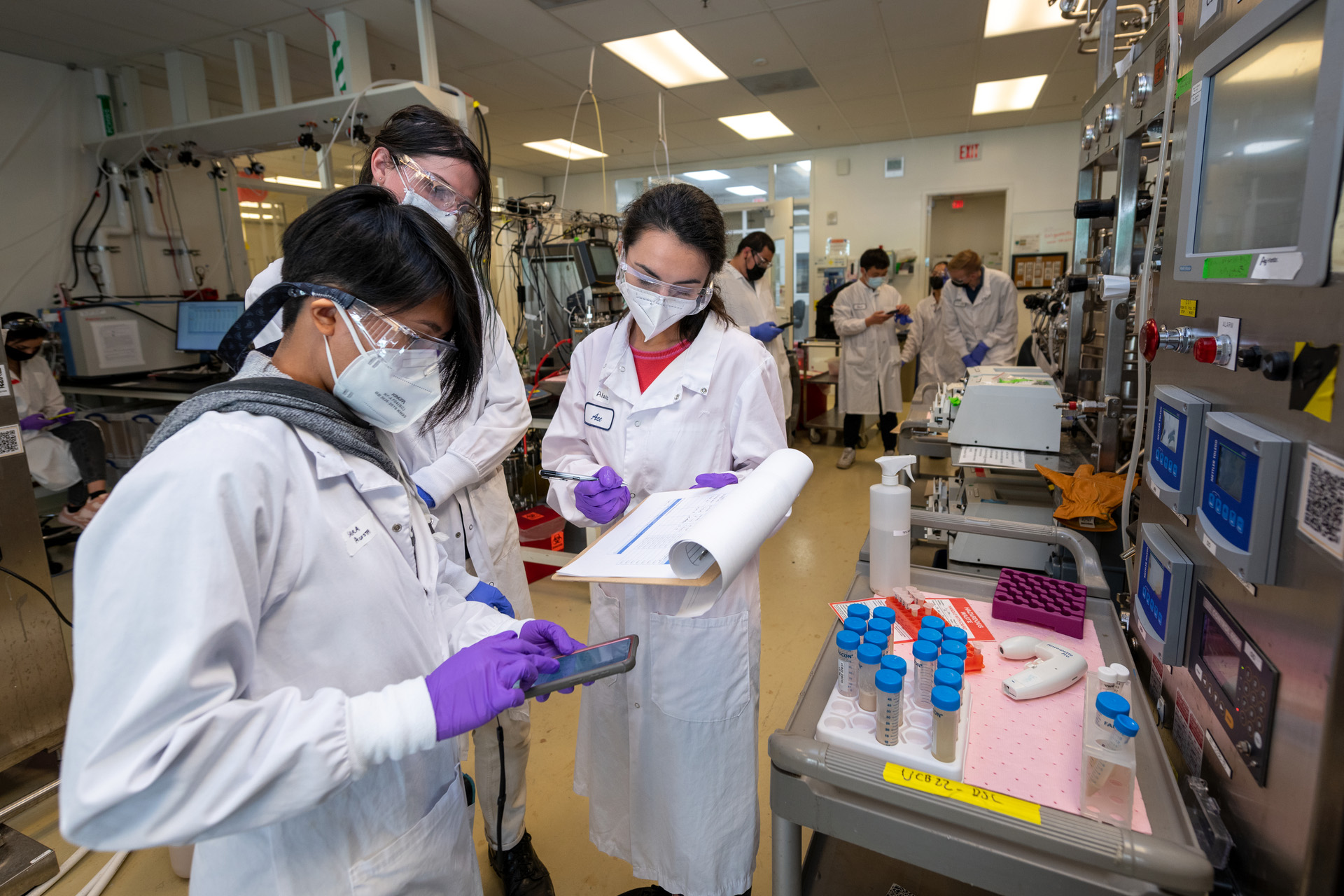The envisioned BioGEM facility would integrate bioengineering research on microbes and plants from discovery to scale-up for biofuels and bioproducts. This facility would provide state-of-the-art space for training the bioeconomy workforce of the future.
Synthetic biology
Develop tools and pathways for producing biofuels and bioproducts using microbes.
Process engineering and scale-up
Develop, improve, and optimize biological processes at relevant scales for biofuels and bioproducts.
Automation
Automate DNA construction and experimental assays for high-throughput and reproducible experiments.
Artificial Intelligence/Machine Learning
Apply machine learning and artificial intelligence to provide insights into biological function, identify opportunities for improvement, and design new experiments.
Plant biology
Develop a fundamental understanding of cell wall biology and develop tools to facilitate bioenergy crop improvement.
Design-Build-Test-Learn capabilities
Design biological pathways for production of biofuels and bioproducts, build biological systems, test those systems, and learn from experiments to continually improve biological engineering.
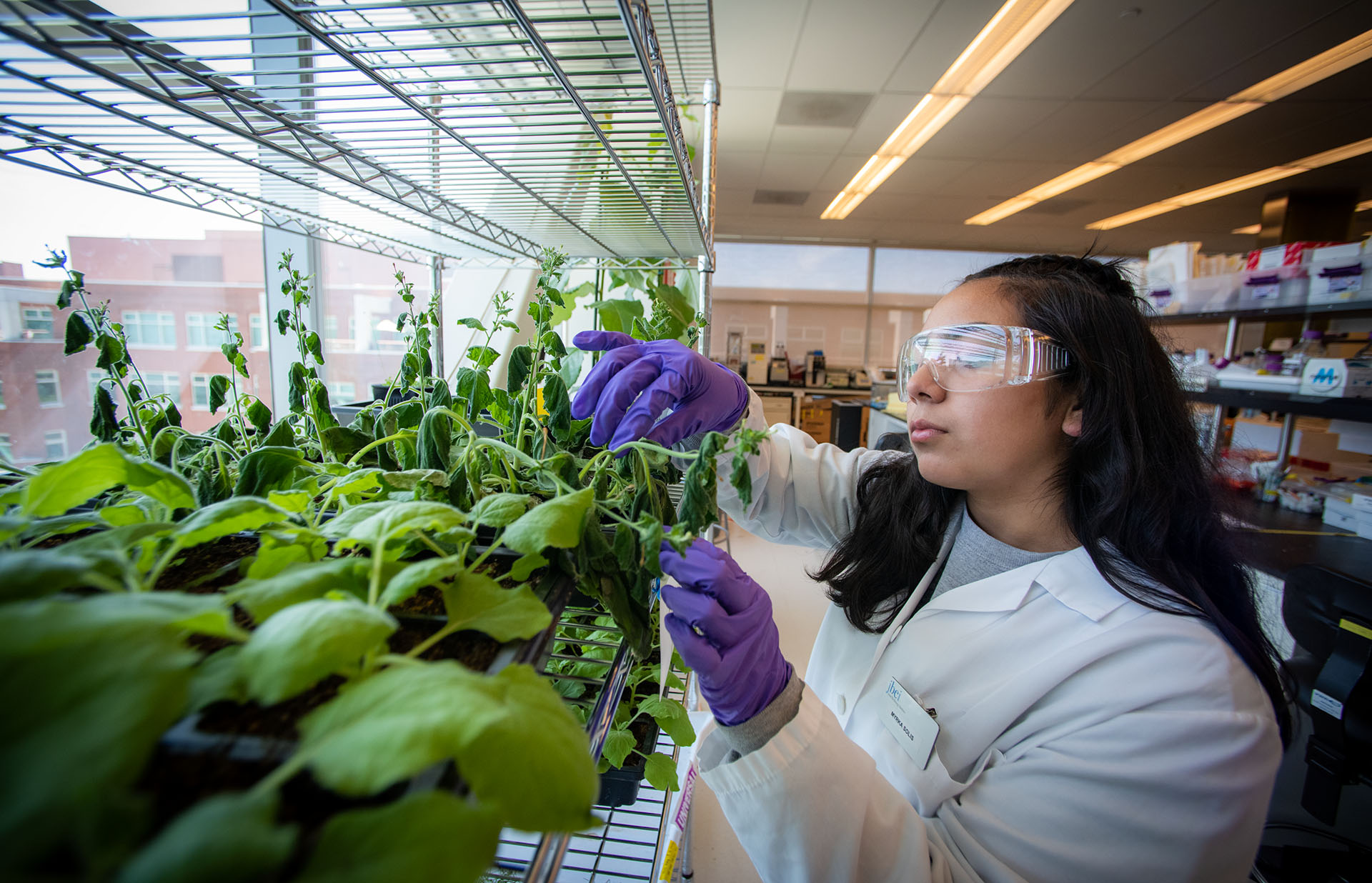
JBEI researchers are using the latest tools in molecular biology, chemical engineering, and computational and robotic technologies to transform biomass into carbon-neutral biofuels and bioproducts.
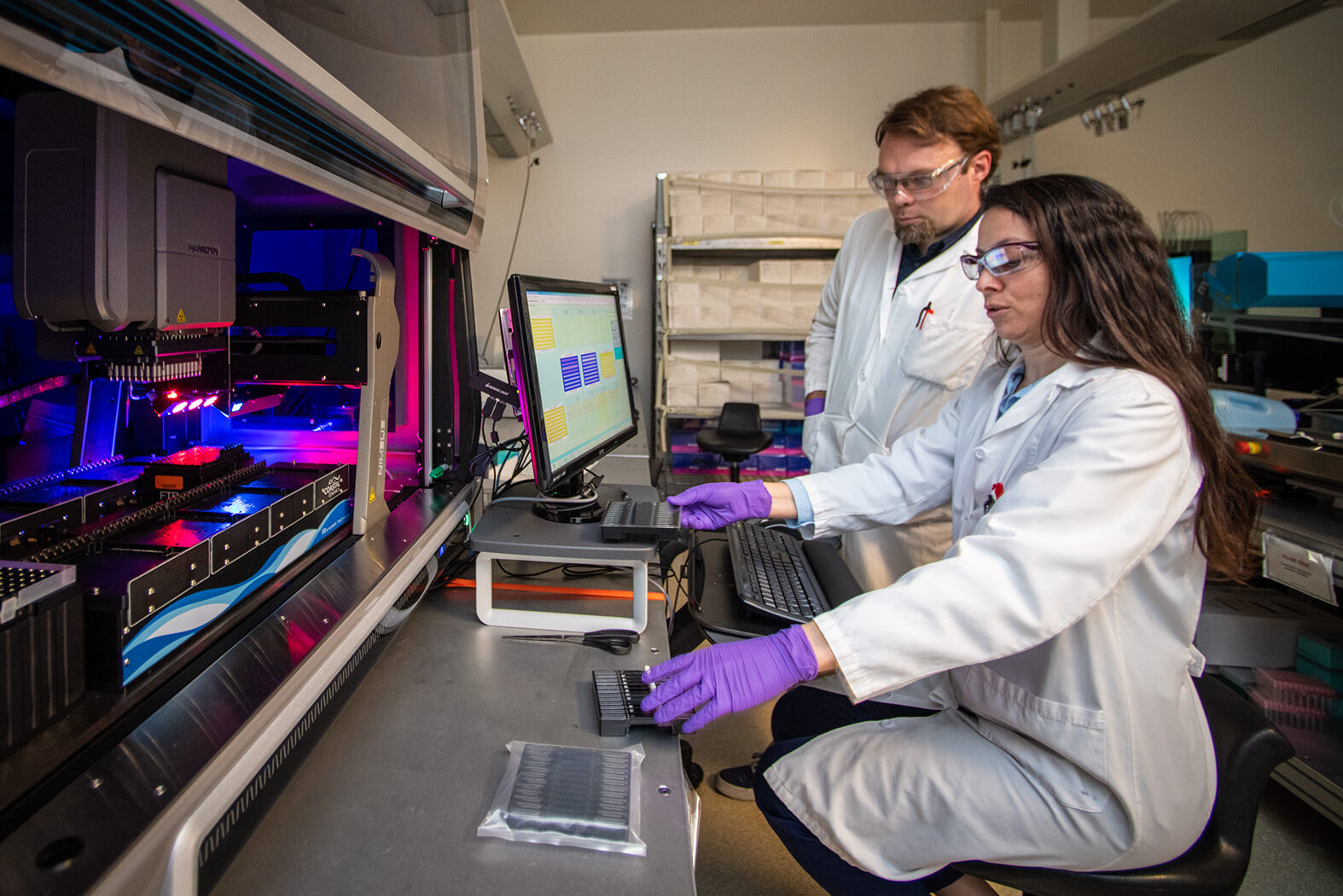
The Agile BioFoundry, a consortium of national laboratories dedicated to accelerating biomanufacturing and decarbonizing the economy, engineers biological systems to perform desired functions and produce molecules at optimal yields, efficiencies, and costs.
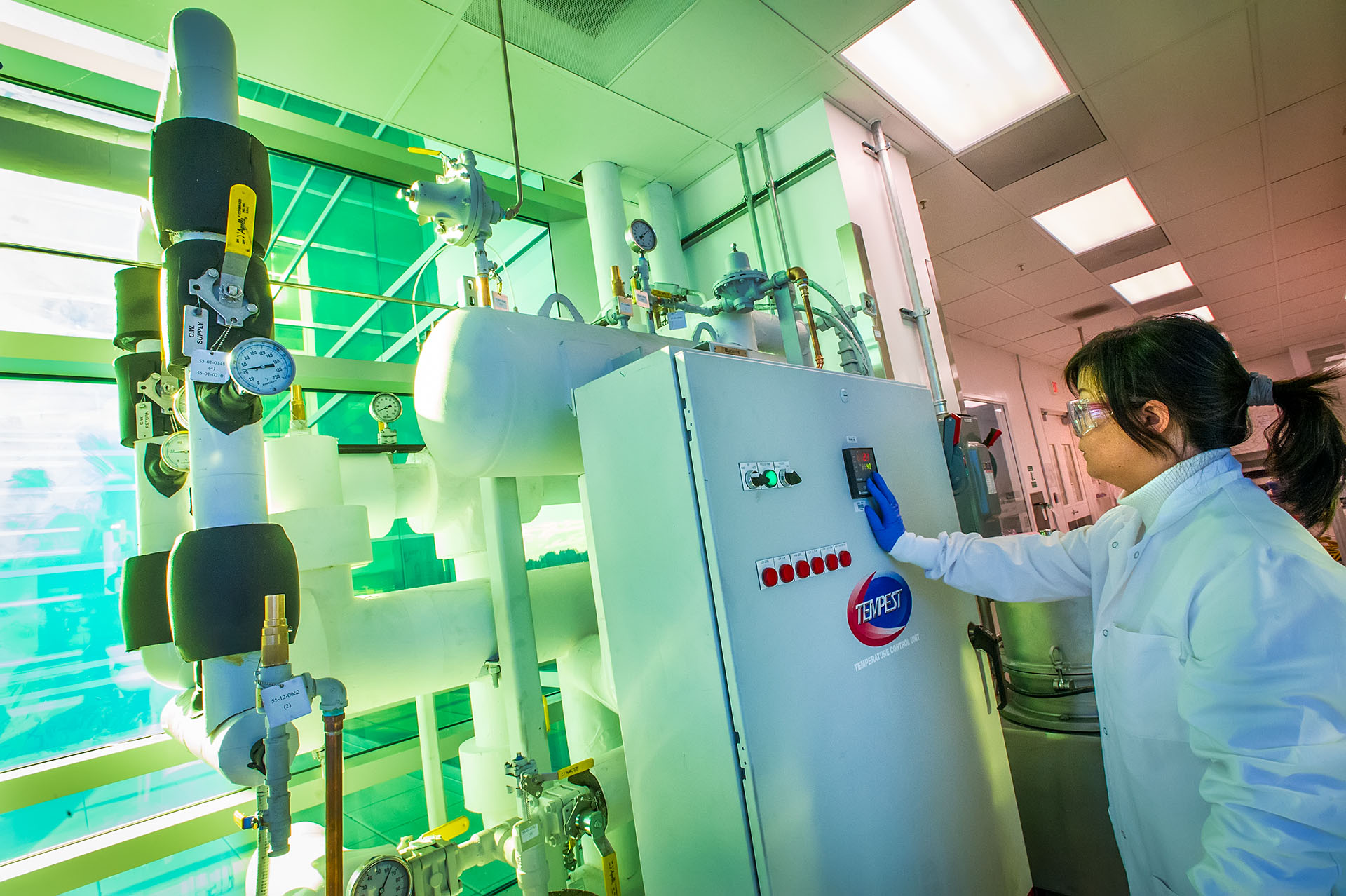
The ABPDU collaborates with academic labs, start-ups, and established companies to accelerate new biology-based products from early R&D to market readiness.
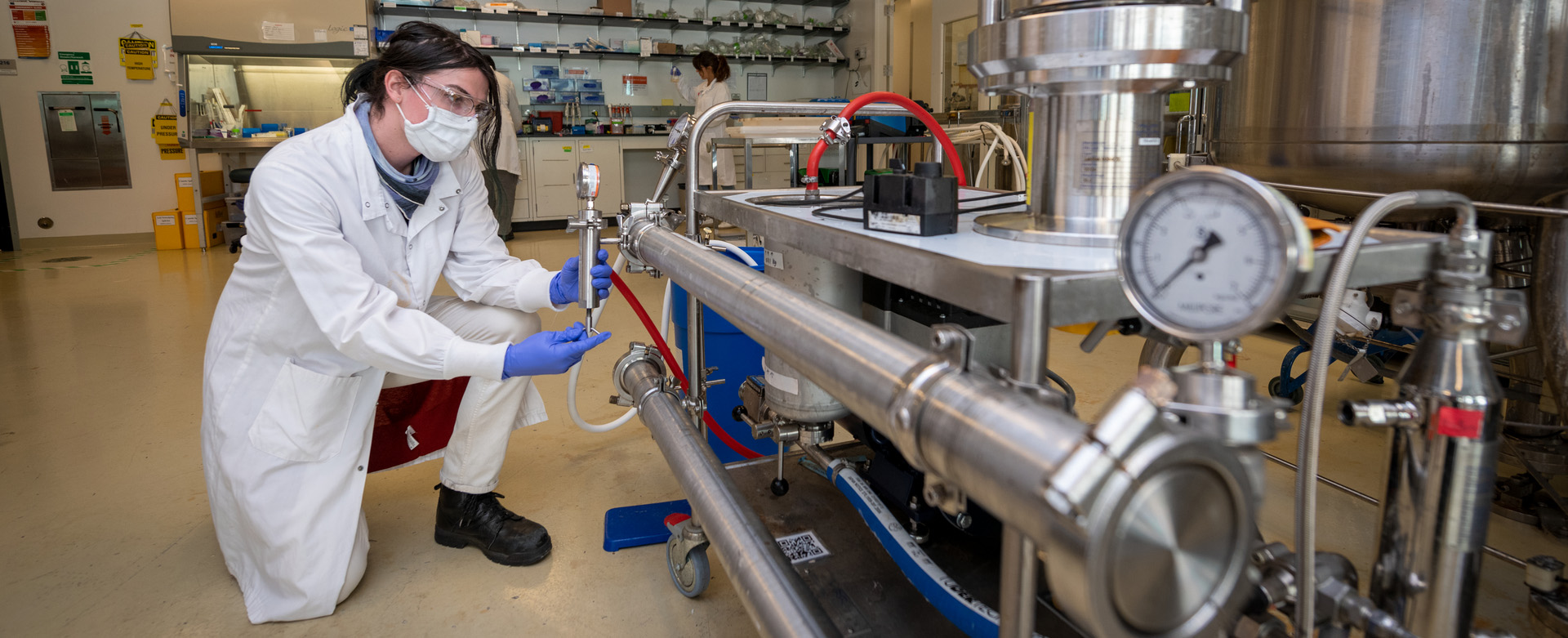
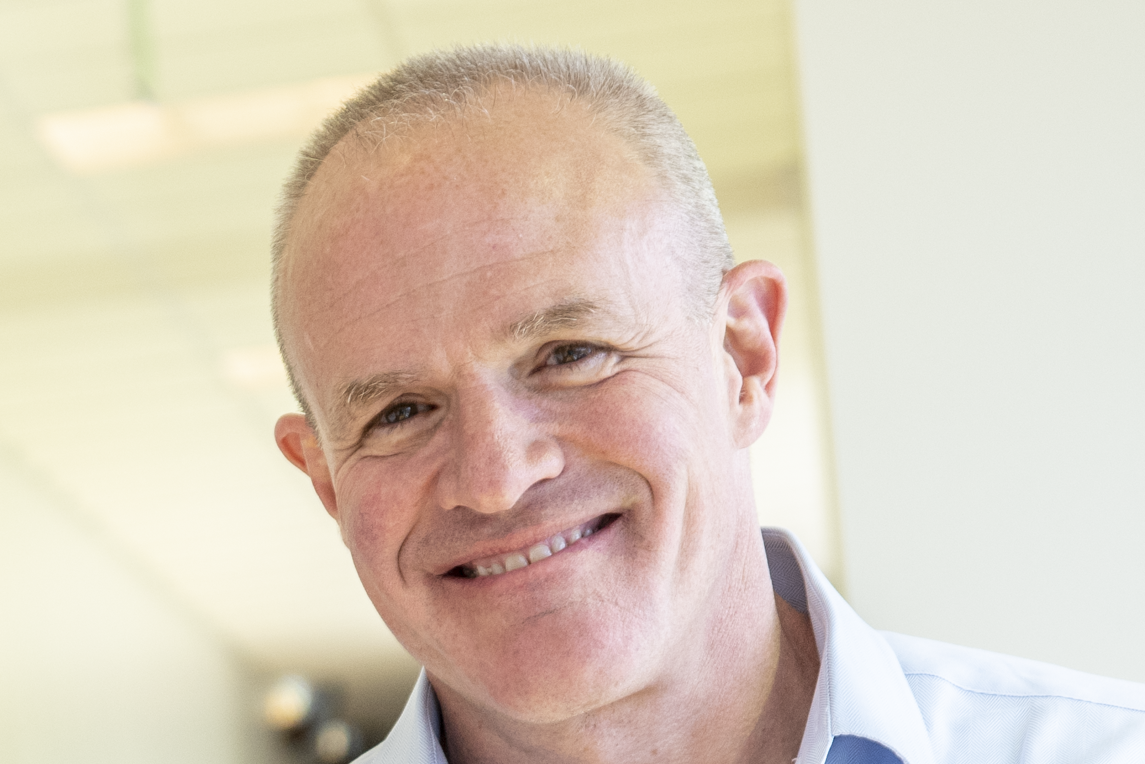
While the possibilities of biotechnology are staggering, the bioprocess industry is facing a surging demand for experienced people to develop and scale processes that bring these bio-based products to market.
That problem is the driving force behind UC Berkeley’s Master of Bioprocess Engineering (MBPE) program, as well as the Advanced Bioprocess Engineering Laboratory, a new capstone course in the program that takes place at Berkeley Lab’s Advanced Biofuels and Bioproducts Process Development Unit (ABPDU).
